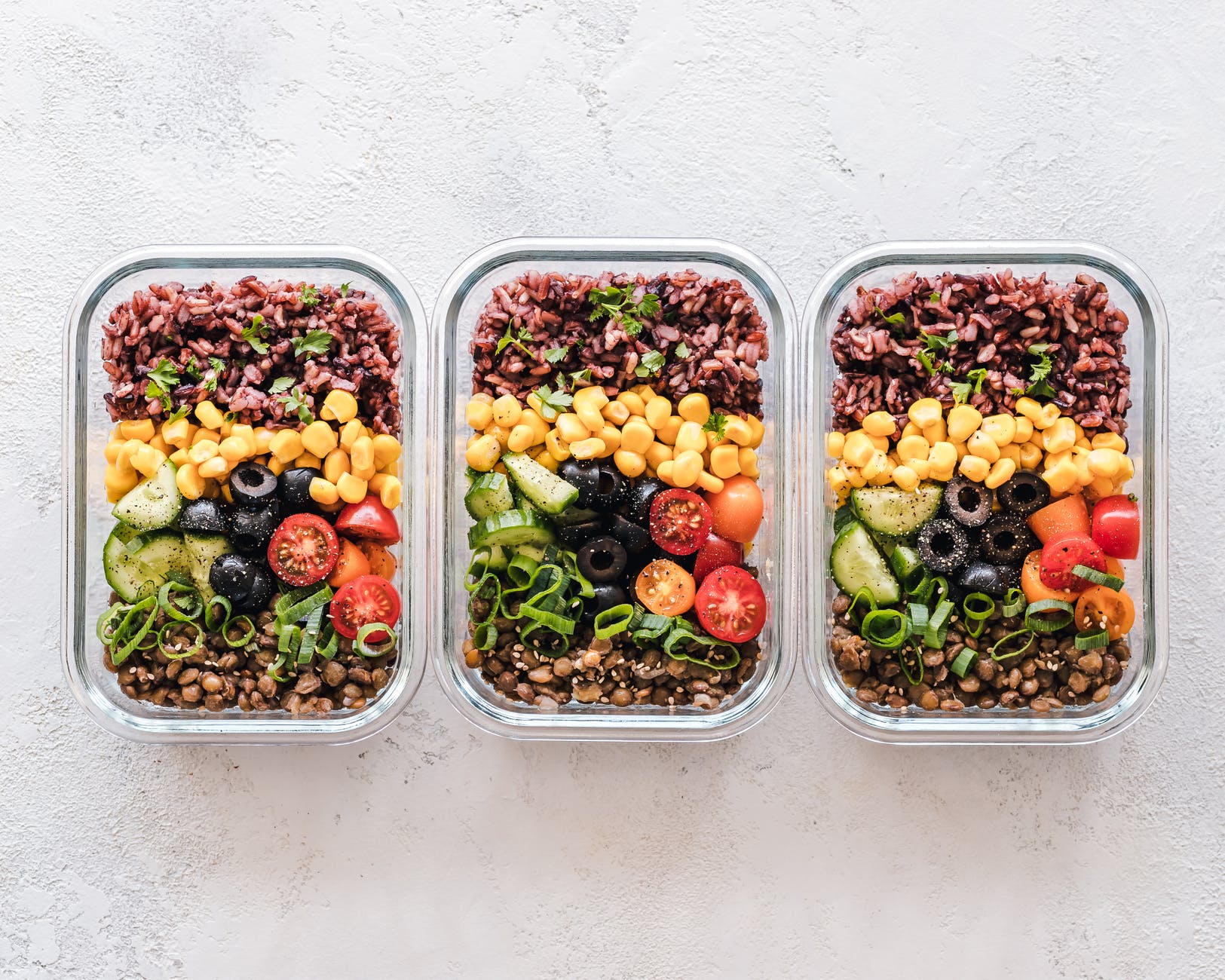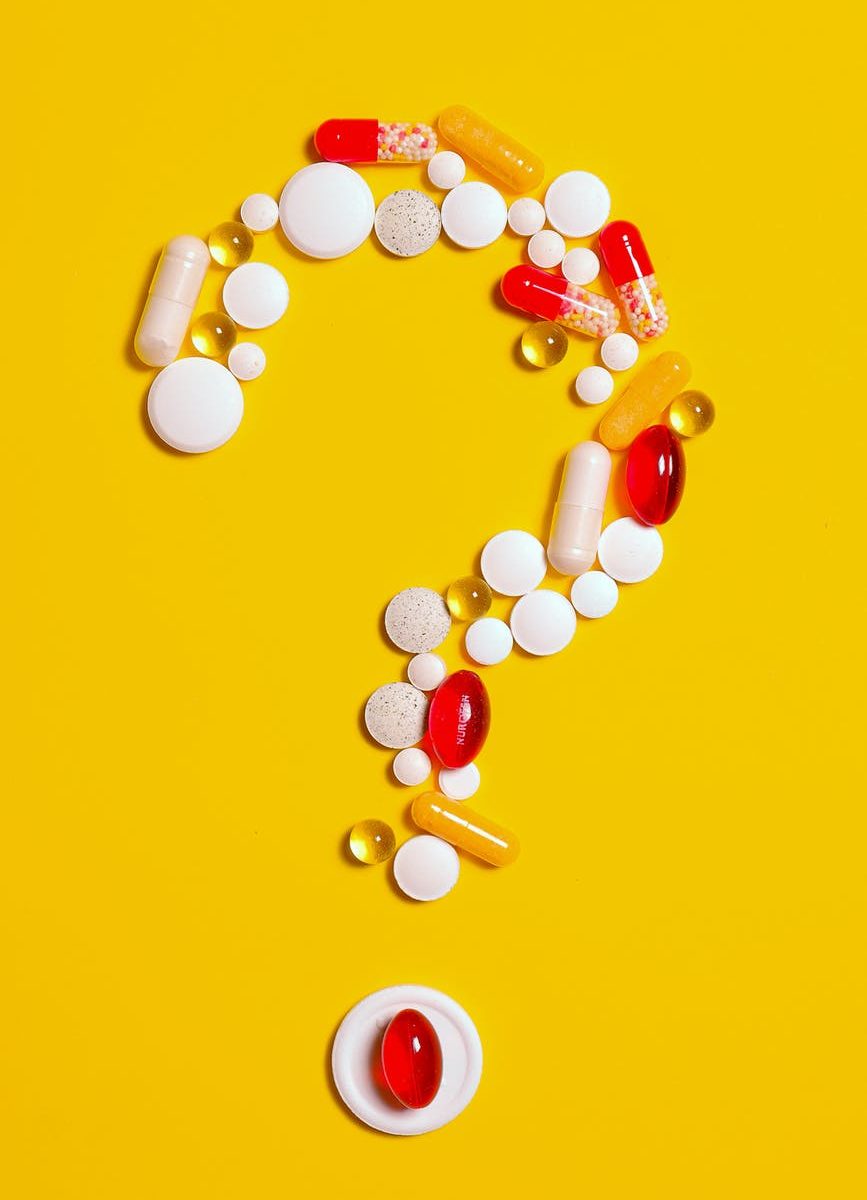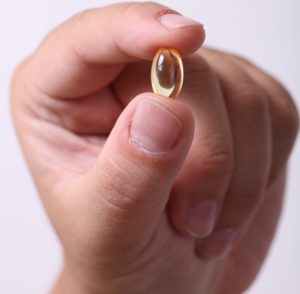One day a friend came over to our house and was talking about how he had discovered that taking a multivitamin was super important to fill in the gaps of nutritional deficiencies in our diet.
Okay. So far so good.
 Our soils are very depleted and no matter how good your diet is, there are probably fewer nutrients in it than there were in the food our grandparents ate. So taking additional nutrients in the form of a supplement makes sense for most people.
Our soils are very depleted and no matter how good your diet is, there are probably fewer nutrients in it than there were in the food our grandparents ate. So taking additional nutrients in the form of a supplement makes sense for most people.
Then he said, “I got a huge bottle of from the drugstore for like $10! It last me about 6 months!”
Hold on.
Stop right there.
I told him, “Those vitamins will kill you” and he couldn’t pick his jaw up off the floor fast enough. I’m usually the “healthy advice” person in the room, so when I say things that contradict what people read in a magazine I get looks of shock.
As is usually the case… supplementing our diets with vitamins is a bit more complicated than the standard mainstream advice.
Aren’t All Vitamins the Same?
Almost all vitamin supplements on the market are synthetic. (If they are cheap: they are guaranteed to be synthetic).
That means they are not from food: they are chemically created in a lab. You may think, as my friend did, that “everything is a chemical” so it doesn’t make a difference where we get these nutrients… but it does.
Chemical, synthetic “vitamins” may share a chemical structure with their natural counterparts, but they are not recognized as nutrients by the body, and with long term use will cause disease.
In fact, even a nutrient isolated from a whole food is not the best thing to take, even if it came from a completely natural source.
What’s the Difference?
Here’s the thing.
Nature puts our nutrients into packages called food: fruits, vegetables, herbs, spices, plants, and even animals.

Our bodies are part of nature and we have always assimilated nutrients through food.
When we eat food, our body is not only absorbing one nutrient. It’s absorbing the whole food, which is a unique combination of micro and macro nutrients: vitamins, minerals, fiber, sugar, carbohydrates, protein, fat, amino acids, enzymes, and other components. Foods have a very complex makeup of symbiotic constituents that work together to provide nourishment to the human body.
We often try to recreate this symbiosis (in a primitive way) by pairing vitamins and minerals together that we have discovered are “cofactors” of each other.
For example, iodine is a very important nutrient to our bodies, but it has been discovered that we don’t absorb iodine very well without selenium. So you may see supplements that have both selenium and iodine to ensure adequate absorption of both.
But it’s much more complicated than that. And simply re-creating a vitamin in a lab with chemicals is not the same thing as getting that nutrient in its food packaging.
How the Body Absorbs Nutrition
 When we eat food the digestive system breaks it apart and begins assimilating and distributing nutrients to different areas of the body.
When we eat food the digestive system breaks it apart and begins assimilating and distributing nutrients to different areas of the body.
The body has receptors for certain nutrients in all different places. For example there are iodine receptors all over the body, but there are a lot of iodine receptors specifically in the breasts and sexual organs of women. So when there is an iodine deficiency, dysfunction in these organs and systems can often result.
This is Important
When there is a deficiency of a nutrient in the body, the body starts to crave the foods that contain those nutrients. That’s why sometimes, out of nowhere, we really want to eat a burger or chocolate or something with tomato sauce… our body may be in need of iron or magnesium or lycopene, for example.

Taking a multivitamin to fill in nutritional gaps is not a terrible idea, but synthetic vitamins are not a good solution. The body does not recognize these nutrients… but it will accept them as a substitute in the absence of real nutrition.
Over time however this can cause all kinds of health problems, from disease to chronic ailments, pain or cancer.
Disease is pretty much always a deficiency of nutrients, in combination with a high toxicity load.
Synthetic vs Natural Nutrients
For example, this is how people die of radiation poisoning. Radioactive isotopes are simply unstable elements that are similar to nutrients our bodies need.
At Fukushima there was an abundance of iodine-131 contaminating the oceans and environment. This can be dangerous to humans, but only if we are already deficient in the good, stable form of iodine.
What is the way to prevent radiation poisoning from iodine-131? Get the whole stable form of iodine (an essential nutrient)
This is how the body sees it: “I’m deficient in iodine (most people are). This “iodine” isn’t the best but it’s better than nothing so I’ll take it.”
Then this unstable iodine poisons the body and fills up the iodine receptors (there are a bunch in breasts, ovaries and other female reproductive organs).
The way to prevent or remedy this is to take actual iodine…. the body says, “Oh! This is what I really want!”
So it dumps the toxic stuff and replaces it with the real stuff.
This is also exactly how the body responds to synthetic nutrients: it will accept them in the absence of real nutrients… and you might feel better initially. But there is no healing, and these synthetic elements will eventually cause problems in the body because the nutrient deficiency was never adequately addressed.
An Epidemic of Malnutrition
You may be surprised to learn that in the United States, a country with an abundance of overweight people, malnutrition is an epidemic.

It would seem that these people are overfed, if anything, and that’s true: but they are undernourished, because we eat a scarcity of foods with real nutrition.
Have you ever wondered how you can eat a whole meal and feel full but still feel hungry at the same time?
It’s because your body is craving actual nutrition. You just ate a bunch of calories that the body doesn’t know what to do with, but it still needs nutrients. So the body stores those calories as fat to deal with later, and you are still hungry.
This may come as a shock to you, but eating food is to fuel our bodies: not just because we like it.
Don’t get me wrong: real food tastes really good. But in our over-processed society filled with fast junk food… we are overfed and undernourished.
We have missed the point of eating entirely.
Think about what you’ve eaten over the past 3 days. Write it out if you can remember. 
I’ve seen food diaries that look something like this:
- Breakfast: bagel with cream cheese
- Snack: Coffee powdered creamer and a doughnut
- Lunch: Subway sandwich with deli meat and condiments with a soda
- Afternoon snack: Doritos and M&M’s
- Dinner: Pizza with soda, ice cream as a dessert
Unfortunately, this “diet” is much more common than anyone wants to admit. Some even think this is fairly healthy!
What I see is an entire day almost completely devoid of any nutrients whatsoever.
The entire point of eating is nutrients, and we aren’t getting any!
No wonder our bodies are starving as our weight tips the scale!
So What Do We Do?
But if the multivitamins we buy at the store aren’t good either, what should we do?
The first thing to do is improve our diets. Even though it may not be possible to get all of the nutrients we need from today’s food, We need to do a better job of trying, because the best multi in the world is not going to give us all of the nutrition we need.
We also need to focus on gut health: eating for gut health, improving our gut health and ensuring that we are absorbing the nutrients from our food and supplements.
Think about it: if our digestive system is unhealthy and imbalanced, we will be unable to absorb the proper nutrients from our food or our supplements–so all of that effort and expense will be wasted.
Also, the latest research shows that gut health is literally the root of everything: so if your gut is unhealthy, you will be sick. And you won’t get better until you improve gut health. The issues you have may snowball into more issues and more issues. So why not just get to the root and be healthy and avoid all of that heartache?
Gut health is the root of:
- Mental Health (anxiety, depression, brain fog, focus, development…)
- Allergies (all of them–including food, pet and environmental/seasonal)
- Skin issues like rashes, eczema, psoriasis and acne
- Hormones, thyroid, adrenals, weight, blood sugar and blood pressure…
- Digestion and digestive issues, including absorption
- Detoxification and organ health
- Parasites, mold, fungus, candida…
Click here to read some inspiring stories of healing in each of these areas.
But How Do I Improve Gut Health?
That’s a great question.
I spent about 10 years trying to figure this out.
I tried dozens and dozens of probiotics.
I created my own ferments (both food and drink) in my kitchen.
I made and consumed gallons of bone broth.
I ate organ meat and farm-fresh vegetables and any dairy I consumed was raw or cultured.
I avoided all the bad things like sugar and processed foods and read every label in sight.
But it wasn’t enough.
I knew gut health was the root, but HOW did I achieve it?
I stumbled upon a gut-brain axis healing protocol that changed everything.
It’s research based, formulated with whole foods, herbs, probiotics and real nutrients, and it actually works.
Not only that, the company offers a money back guarantee. FOR A YEAR.
It’s literally guaranteed to work. So I figured I had nothing to lose.
And neither do you.
Nothing to lose except
- pain
- bloating
- inflammation
- indigestion
- IBS
- depression
- anxiety
- skin issues
- allergies
- high blood sugar
- high blood pressure
- brain fog
- parasites
- candida
- mold toxicity
- sensitivities
What are you waiting for? Get the gut-brain axis healing protocol here.
And when you get that, you can add this for half off: a whole food, fully methylated multivitamin for less than you are probably paying now.
Everything is guaranteed for a full year.
And today I can offer $10 off your first order: simply enter code 39519 in the coupon code box at checkout.
New to Freedom & Coffee? Start here.
Disclosures:
Many of the product links in this post are affiliate links, which means I will receive a small commission from any purchase. I only recommend products that I love and this is at no extra cost to you. Thank you for supporting our mission with your clicks!
Resources for Further Study
The Best Gut Healing Protocol I have found (Gut-Brain Axis Healing)
Need a Whole Food, Fully Methylated LEGIT Multivitamin? Here you go.
The Gut-Brain Axis: The Key to Mental Health From the Root
How to Reboot Your Gut and Kick Parasites to the Curb
Want Clear, Healthy Skin? Heal From the Root
Inspiring Stories of Root Cause Healing
Improve Your Gut and Improve Your Whole Life!




Wow, this was very eye opening! I love how detailed and in depth this article is. I truly appreciate the time you took to explain nutrition and how the gut is where the root problem is. Everyone should be made aware of this. Doctors don’t talk about it, only wanting to push pharmaceuticals at us. Again, thank you!